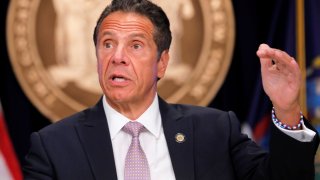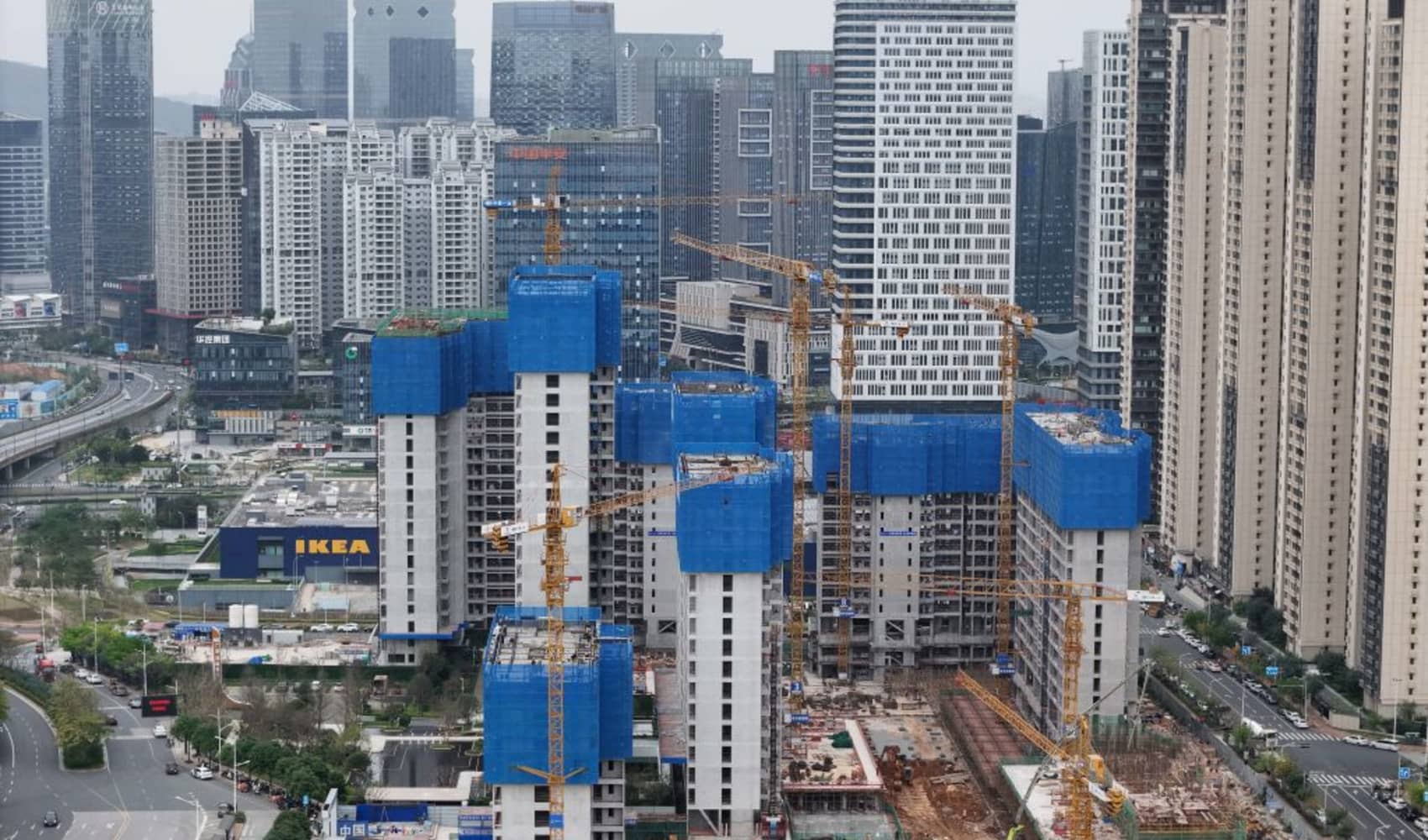
- New York Gov. Andrew Cuomo on Wednesday urged the federal government to provide funding to distribute a coronavirus vaccine.
- "The states are broke," Cuomo said during a press briefing. "They estimate that the cost to the states to distribute a vaccine ... $8 billion. So far, the government provided $200 million."
- A Department of Health and Human Services spokesperson told CNBC that the agency is working to "secure and distribute additional funding to jurisdictions for calendar year 2021 and beyond."
New York Gov. Andrew Cuomo on Wednesday urged the federal government to provide funding to distribute a coronavirus vaccine, saying states currently don't have the money.
"The states are broke," Cuomo said during a press briefing in Rochester, New York. "Washington never approved the state and local funding. They estimate that the cost to the states to distribute a vaccine ... $8 billion. So far, the government provided $200 million."
He said distributing a vaccine is going to be much harder than anticipated, citing the early difficulties states had in administering Covid tests.
"A Covid test is relatively simple, right? Nasal swab to the nose, that's a Covid test," he said. "With everyone doing everything they can in nine months the nation administered 180 million Covid tests nationwide. ... To do vaccinations, you have to do 330 million vaccinations and you have to do them twice. Twice."
Cuomo's comments come as states prepare to distribute a vaccine as early as next month. Last week, Pfizer and BioNTech applied for an emergency use authorization with the Food and Drug Administration for their vaccine. The FDA's review process is expected to take a few weeks. It's scheduled an advisory committee meeting in early December to review the vaccine.
Every state has submitted a plan to the Centers for Disease Control and Prevention on how they intend to inoculate some 331 million Americans against Covid-19 once that vaccine is approved. The CDC has allocated $200 million to jurisdictions for vaccine preparedness, though much of that funding hasn't trickled down to the local level.
Money Report
A Department of Health and Human Services spokesperson told CNBC that the agency is working to "secure and distribute additional funding to jurisdictions for calendar year 2021 and beyond."
Associations representing state and local public health departments have called for more than $8 billion to fund the plans. That money would help ramp up their health-care staff, improve their data systems, pay for the ultra-cold freezers needed to store some of the vaccines and prepare educational material to ease people's potential safety concerns, they say.
Cuomo said he is scheduled to meet with President-elect Joe Biden's coronavirus advisory team later Wednesday to discuss what states need in order to distribute a vaccine.
Biden's plan calls for $25 billion for vaccine development and distribution, guaranteeing that "it gets to every American, cost-free."
This isn't the first time Cuomo has asked for more funding.
As chairman of the bipartisan National Governors Association, he sent a letter from the group to the Trump administration last month with a series of questions about funding, such as how long the vaccine will be provided to states at no cost and whether the federal government will help pay for "boots on the ground."
Cuomo has repeatedly said it would take "months and months" to vaccinate enough people before Covid "is no longer a problem."
New York is currently fighting off a new rise in Covid-19 cases. On Monday, Cuomo announced that the state would reopen a temporary field hospital on Staten Island to help treat an influx of coronavirus patients. The 100-bed field hospital was one of many New York opened in the spring as it fought back a wave of Covid infections that overwhelmed its hospital system and killed roughly 800 people every day.






